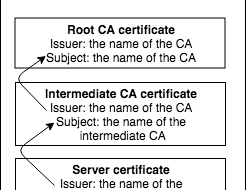A guide to marketing yourself and your work.
 Photo by Kari Shea on Unsplash
Photo by Kari Shea on Unsplash
Every fiction writer should be a blogger.
There. I said it.
Here?s the difference blogging made for me: When I sold my first book to a major publisher, I wasn?t blogging, I didn?t have an email list. I believed the narrative that fiction writers don?t need a platform.
And, to be honest, I was relieved by that idea. I didn?t want to market. I wanted to write. I bet you?ve heard that before. Like in your own thoughts.
So, I trusted that there wasn?t anything I needed to do to sell my books, except for write them. Only problem was ? that book didn?t sell very well.
I sold another book, a few years later, and this time I knew that creating my audience was my responsibility. No one else was going to do it for me. So I?d started blogging and building an email list.
That book went out into the world with about 1000 pre-sales. That?s a big deal. It made a major difference.
If you?re a writer, you should be blogging.
Blogging gives you the chance to publish regularly ? weekly, at least. Maybe even daily. It also puts you in control of the content, something that might be a pleasant change if you?re used to relying on the subjective taste of various gatekeepers for getting your work out.
Even the most prolific fiction writer doesn?t publish often enough to really build and engage an audience. Especially if they?re writing novels. Even if you?re one of those hyper-productive indie published authors who?s slamming out a novel once a month, that?s a fraction of the number of times you could connect with your audience via blogging.
Blogging gives your audience the chance to get to know you and connect with you personally, which is how you build a base of fans for your body of work.
A blog is one of the best means for building an email list full of those fans.
Blogging is really a no-brainer for fiction writers. We?re already storytellers. We already enjoy the base activity (writing.) There?s a learning curve for the technical aspect, but once that?s overcome, blogging is easy and fun.
It?s a lower-stakes version of our main occupation that allows us to publish super regularly and connect directly with readers.
Plus, with a little extra work, it can bring in some income. Maybe even long before fiction writing does.
Fiction writers should be regular bloggers. But we have a problem.
There?s so much bad information out there, when there?s any information at all. Most of the time we?re left trying to scramble to figure out how to make information fit our needs, when it wasn?t really meant for us.
Because lots of people are telling non-fiction writers how to blog and how to build an email list and how to reach their audience. But what about novelists or short story writers or poets or artists of any kind?
I got so excited the other day because on the big online writing advice guys was advertising a webinar promising that he had the answer. He was going to teach fiction writers how to blog. So I signed up and I logged in. And his big idea?
Fiction writers should be writing book reviews he said. Write a book review every month. That was it.
I wanted to reach through my computer screen and strangle him. Or at least send some kind of message to all the other writers listening with bated breath.
Because that?s not how this works. That?s not how any of this works.
He?s helped fiction writers do some pretty amazing things, it?s true. But not this. What he?s done is take success fiction writers who already have a platform and helped them to expand on it. Which is a whole other animal from being a brand new, aspiring creative writer with no platform at all.
It starts with figuring out what you want to say.
Here?s what we should not be blogging about: our own writing.
No one cares about our cover reveals or our writing processes. They don?t even know us. They wouldn?t care about our writing process if we were their favorite writers.
I can prove it to you. Ask yourself how many writers you follow because you?re riveted by their processes?
Uh huh. Exactly. You follow them because they entertain you or they teach you something. You aren?t doing them a favor. It?s all about you.
I?m going to say that one more time, because it?s really important.
Your readers aren?t doing you a favor. They?re reading your blog for themselves.
And please, please, do not write book reviews. This is a bad idea on so many levels. Repeat after me: Book reviews are for readers. Once you become a writer, they aren?t your business. If you?re reviewing books similar to yours, you won?t be able to really be critical, so they?ll be weird, stilted reviews at the very least.
I promise you, building a blog around book reviews if you?re a fiction writer is a bad idea.
Readers are human beings and human beings are all about themselves.
That?s the truth. If you do two things, you?ll be able to build an audience that will love you and follow you and buy your books: introduce them to you and then make it all about them.
It doesn?t matter what you blog about. Whatever interests you, whatever is interesting about you, whatever you?re good at, whatever you want to be good at. You?ll find people who care about those things, too.
And when you write for those readers, they?ll care about you and it becomes a whole circle of life thing. It?s beautiful.
For the record, just because you?re a writer doesn?t mean that you have to write about writing, either. You can write about anything. You?ll find readers who are interested in the topics you want to write about.
And as those readers become fans, they?ll get excited with you when you do talk about your fiction. Which you will, sometimes. Just not exclusively, or even most of the time.
Let?s talk a little about blogging.
There are really two things you can do: teach something you?re an expert at or learn something you?re not an expert at.
Bryan Harris at Growth Tools calls the second one learning out loud.
When I write about writing fiction, I put on my expert cap: I?ve been a fiction writer for more than 20 years, I?m traditionally published, I have an advanced degree in creative writing.
When I write about writing fiction, I?m teaching readers what I?ve already mastered. I?m a sherpa who already knows the way.
When I write about my big, fat plan of running an Iron Man three years from now, I?m most definitely learning out loud. I hope no one comes to me (at least not right now) looking for advice about how to be an Iron Man because I am not your girl.
When I write about my Iron Man plan, I?m taking readers along with me as I do this thing I?ve never done before. I?m a stumbler, just like you.
See the difference?
So, start here: Take an inventory. Get out a notebook and make a couple of lists. One quick rule, though. Don?t limit your list to the the things you think you should be blogging about. Go wide here.
Start with things you?re good at.
My list looks like this:
I?m a professional fiction writer. I?m an idea person. I am very right brained. I?m a teacher, by nature. I have an adult child who has autism. I?m a soccer mom. My parents in law, who both have dementia, live with me. I?ve been very poor. My father was in prison when I was a teenager. I grew up surrounded by addiction. I?ve lost 120 pounds via weight loss surgery.
You can see, I?m not just listing my jobs or things I?ve had some training in. There are parts of my life that I?m confident about speaking into from a place of experience and expertise. I can write about poverty, for instance, because I?ve been there. I can write about being fat and what it?s like to suddenly not recognize your body anymore.
Now list things you aren?t good at, but you want to be.
My list looks like this:
I want to be an athlete again. I want to learn to play the guitar and write songs. I want to travel through Europe with a train pass and a backpack. I want to figure out indie publishing. I want to build an email list of 100,000. I want to learn to tame my right-brainedness. I want to learn to sew.
Once I have that list, I can pick any item on it, make a plan for actually doing it. And then write about doing it.
Next think about your most interesting life experiences.
My list looks like this:
I?ve been traditionally published. My third book will be published in March 2019 and my fourth in March 2020. I have eight brothers and sisters. Our dad was in prison when I was a teenager. I married young and divorced young. I have been very poor. I?m not poor anymore. I have a son who has autism. My husband?s parents, who both have dementia, live with us. I have had weight loss surgery. I am in recovery from an eating disorder. I started a business last year that let me quit my day job.
You can see there?s some overlap with the first two lists.
Finally, what are you interested in?
My list looks like this: I love books and movies and good television (in other words: stories, however I can get them.) I think a lot about creativity and productivity and where inspiration comes from.
This is just a list of things you can mine for ideas. I find that this list is a good place to look for intersections. Like: how does creativity fair when you?re part of the sandwich generation? Or why should fiction writers watch a lot of television? Or can you be a writer and a poor single mother at the same time?
Put it all together.
Take a look at your lists and decide which ones resonate the strongest with you.
For me, that?s: writing, starting a business, marketing, creativity, productivity, body positivity, weight loss, my 60 Months to Iron Man plan, poverty, autism, dementia.
Once you your topics, here are three free websites you can use to research ideas for blog posts.
Quora.com is a question and answer social media platform. Enter your topic in the search bar and look for questions that users have asked about it. Answer those questions in a blog post.
Answerthepublic.com is a website that pulls Google searches that have been done using your topic as a keyword. It?s a goldmine! You?ll be able to pull tons of blog post ideas from the searchest that real people who are interested in your topic have performed.
Ubersuggest.com is a site that lets use enter a keyword, such as your topic, and get an idea of how many people search for it on Google every month. You?ll also get a list of other websites that have written about your topic so you can be inspired.
I also like to keep books related to my favorite topics near my desk. When I?m stuck for an idea, I just flip one open and I?m nearly always inspired by what I find.
A few weeks ago, I hosted a live chat with Ninja Writers where I talked about the exercise above and went in depth into blogging for fiction writers. You can get the replay of that video here.
The basics.
Now that I have you convinced (I hope) that you should be a blogger if you?re a fiction writer, here?s some basic information on the how-to part.
Where to host your blog.
You can start a free blog on a site like WordPress. You can also buy a domain and host your own website. A self-hosted website will allow you to better optimize your site for collecting email subscribers.
How to set that up is beyond the scope of this post, but Jeff Goins has a good post with the basics.
How to Start a Self-Hosted Blog in 8 Minutes or Less
I?m gonna cut to the chase: You need a blog. The world is changing and moving on without you, and it?s time you had a?
goinswriter.com
With all that said, I think the best place to blog is where there are already readers. I write here, on Medium. It?s super easy, free, and if you work at it, there?s an opportunity to make some money.
I?ve created a little ebook that?s got pretty much everything I know about writing on Medium inside it. You can get that free here.
Building your email list.
You?ll also want to start building an email list, which is a big part of the point of blogging. You?re making connections with readers, building a fan base, you want a way to be able to reach out to them.
You?ll need to sign up for an email server. I use Convertkit. Mailchimp is free at the beginning. There are lots of other servers out there, but those are the two that I have experience with.
Your server allows you to collect email addresses and easily send emails out.
Here?s a post that will help you get started with email list building.
How to Build an Email List (and Why You Should)
5 steps to get you started.
medium.com
Finding time for it all.
It helps to see blogging as part of your job. Not a side project you work on when you have the time, but an important part of your writing career.
Finishing your novel is a big deal. You need to do it. So you don?t want blogging to take over and push fiction writing out. But when that novel is finished, when you?re ready to publish it, you?ll be glad you took the time to build a little platform for yourself.
Seth Godin said, ?Everyone should write a blog, every day, even if no one reads it. There?s countless reasons why it?s a good idea and I can?t think of one reason it?s a bad idea.?
Daily blogging is a big part of my life and I agree with Seth. There are countless reasons it?s a good idea. As long as it?s not shifting you completely away from fiction writing, I can?t think of a single negative.
But if you can?t swing a daily blog, commit to three times a week. Or even once a week. Just show up for yourself and your readers when you say you will.
Here?s my favorite tool for keeping myself accountable to both fiction writing and blogging.
Meet FRED: My Favorite Writing Accountability Partner.
This post has moved?find it here.
medium.com
Now, get out there and write. I can?t wait to see what you come up with.
Here?s my secret weapon for sticking with whatever your thing is.
Shaunta Grimes is a writer and teacher. She is an out-of-place Nevadan living in Northwestern PA with her husband, three superstar kids, two dementia patients, a good friend, Alfred the cat, and a yellow rescue dog named Maybelline Scout. She?s on Twitter @shauntagrimes and is the author of Viral Nation and Rebel Nation, and The Astonishing Maybe. She is the original Ninja Writer.


